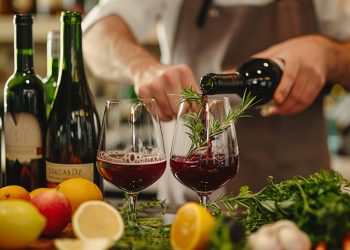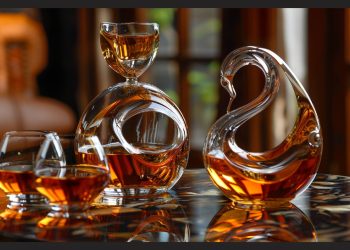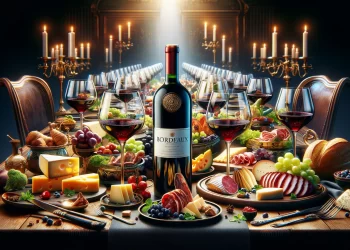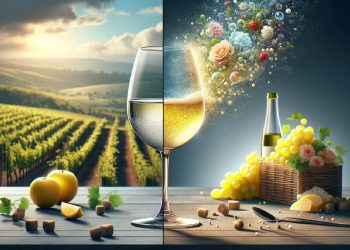Prologue: The Night of Misadventures and Revelations
In the dimly lit corners of a bustling city, where the night air was thick with the scent of adventure and the unknown, there lived a man named Cem. A social butterfly, Cem fluttered through life with the ease of a seasoned comedian, his laughter infectious, his spirit unbreakable. He was the kind of man who could walk into a room of strangers and leave with a band of friends.
One fateful evening, Cem found himself in the heart of the city’s nightlife, a bar pulsing with the rhythm of the young and the restless. The night was young, and so were they, a group of merry souls, men and women alike, bonded by the universal language of mirth and merriment. As the bar’s lights dimmed, signaling the end of an era, a voice rose above the rest, “Let’s take this party home!” And so, they did, with Cem in tow, and two bottles of Madeira Wine as their loyal companions.
At the house, the party roared back to life, fueled by the fiery spirit of the Madeira wine. A game was proposed, a simple roll of the dice, where the highest number earned a shot. Cem, ever the entertainer, declared himself the referee. The game began, and with each roll, Cem matched the winner shot for shot, his laughter growing louder, his steps lighter. Unbeknownst to him, he was dancing on the edge of a cliff.
As the night waned, the laughter faded into the soft whispers of sleep. Cem, drunk on joy and wine, surrendered to the sweet embrace of slumber, a smile etched on his face.
Morning broke with the subtlety of a sledgehammer. Cem awoke, his head a cacophony of pain, his mouth a desert. He stumbled out of the room, greeted by a wall of silence and cold stares. “Good morning,” he ventured, his voice a croak, but the words fell on deaf ears. Confused, he wandered into the kitchen, only to be met with more icy glares. The puzzle pieces refused to fit.
It was then that he saw him, the man from the night before, his face a mask of displeasure. “What happened?” Cem asked, his heart sinking. The man wordlessly guided him to a wall, a silent witness to the night’s folly, stained and dripping with regret. “You threw up, we cleaned,” he said, his voice flat. The tour of shame continued, each stop a revelation more horrifying than the last – the soiled couch, the desecrated bed, and finally, the mirror.
Cem stared at his reflection, half of his face a grotesque mask of dried vomit. In that moment, he saw not just the physical remnants of the night’s excesses, but a reflection of a deeper folly. The laughter, the camaraderie, all reduced to this – a man, alone, covered in his own mistakes.
With a heavy heart, Cem cleaned up as best as he could, his actions a feeble attempt to mend the unspoken rifts. He left the house, the weight of his actions a heavy cloak around his shoulders. For two long years, wine remained a stranger to him, a reminder of the night when the laughter died.
And so, dear reader, as we embark on this journey through the world of wine hangovers, let us remember Cem’s tale. A story of joy turned to regret, of friendships tested, and the harsh light of morning. May it serve as a beacon, guiding us through the tempestuous seas of indulgence, towards the safer shores of moderation and understanding.
[To be continued…]
Now, if you want, let’s leave our story for a while and return to the main subject of our article…
In the realm of wine, a persistent belief has circulated that expensive wines offer a reprieve from the dreaded hangover. But is this just a myth or is there a grain of truth to it? In this article, we delve into the fascinating world of wine hangovers, exploring the factors that contribute to their severity and examining how they differ between expensive and cheaper wines. By shedding light on this enigma, we aim to provide valuable insights for wine enthusiasts seeking to make informed choices and curious individuals intrigued by the impact of wine on our well-being.
Introduction: The Myth and Reality of Wine Hangovers
Hangovers and wine have a complicated relationship. Many of us have experienced the dreaded morning-after effects of a night of indulgence, but is there any truth to the notion that expensive wine can give you less of a hangover? In this article, we will explore the myth and reality of wine hangovers, delving into the factors that contribute to their severity and whether the price tag of your wine bottle plays a role in the aftermath. So grab a glass (or a bottle) and let’s uncover the truth behind this age-old question.
Expensive Wine and Hangovers: Myth or Reality?
Expensive wine and its potential effects on hangovers have long been a topic of debate and speculation in the wine community. Some believe that splurging on a pricier bottle of wine can lead to a milder hangover or even prevent it altogether. But is this just a myth or is there some truth to it? While the idea of expensive wine being a hangover cure may sound appealing, the reality is that the price tag of a wine doesn’t necessarily dictate the severity of the hangover it may cause.
Hangovers are primarily caused by the consumption of alcohol and its effects on the body, regardless of the cost of the wine. So, if you’re looking for a foolproof way to avoid a wine hangover, moderation and responsible drinking are key, regardless of the price of the bottle.
Purpose of the Article: Diving Deep into Wine Hangovers
The exploration of wine hangovers delves into the myth and reality surrounding the effects of alcohol consumption on the body, shedding light on the underlying factors that contribute to this common post-drinking ailment. Wine hangovers are notorious for their unpleasant symptoms, but is there a difference between expensive and cheap wine when it comes to hangovers? Let’s dive deep into the world of wine hangovers to find out. Here are four key points to consider:
- The quality of wine does not necessarily determine the severity of a hangover.
- Red wine hangovers are often more intense due to higher concentrations of congeners.
- There are ways to alleviate a wine hangover, such as staying hydrated, eating light meals, and getting enough rest.
- It’s important to remember that moderation is key when it comes to alcohol consumption, regardless of the price tag on the bottle.
The ABCs of Hangovers: Anatomy of a Wine Wipeout
In the grand, chaotic tapestry of life’s indulgences, hangovers stand as the cruel jesters, mocking our merry pursuits with a morning-after reckoning. Ah, the hangover – that gnarly beast lurking in the shadow of every wine glass, waiting to pounce with the stealth of a panther and the subtlety of a sledgehammer.
But what, pray tell, is this malevolent specter that haunts our vinous pleasures? It’s a labyrinthine tale, a riddle wrapped in a mystery inside an enigma, fermented in the barrels of Dionysian excess. Wine, that ancient elixir, weaves its magic with a blend of compounds – ethanol, congeners, tannins – each a potential accomplice in the morning’s misery.
Ethanol, the chief culprit, is a sly trickster. It seduces with the promise of euphoria, only to betray with dehydration and metabolic mayhem. As your body breaks down this intoxicating interloper, it produces acetaldehyde, a compound more toxic than the alcohol itself. It’s like inviting a charming stranger to your party, only to discover they’re secretly setting fire to the curtains.
Then there are congeners, those dark, mysterious byproducts of fermentation. They add complexity to wine’s flavor but also to your hangover. Darker wines, rich in these mischievous minstrels, often lead the parade in the hangover hall of shame.
And let’s not forget tannins, those astringent compounds that give red wine its body and your head its ache. They’re like the brooding poets of the wine world, deep and complex, but with a penchant for leaving you feeling a bit desolate the next day.
Statistics paint a sobering picture. According to a study published in the American Journal of Clinical Nutrition, about 76% of adults have experienced a hangover after a session of heavy drinking. Another intriguing tidbit from the annals of science: lighter-colored wines tend to be less hangover-inducing, a fact that might steer the savvy drinker towards a glass of Chardonnay over a Cabernet.
So, there you have it, the ABCs of hangovers, a wild ride through the biochemical carnival of wine consumption. It’s a journey of highs and lows, of pleasure and pain, a Dionysian dance where the music stops just long enough for you to feel its absence. Remember, in the world of wine, as in life, every rose has its thorn, every night of revelry its dawn of reckoning.
What is a Hangover? The Morning-After Tale
After a night of indulging in wine, many of us have experienced the uncomfortable aftermath known as a hangover. It’s like waking up to a hangover fairy who sprinkles a mix of regret, headache, and nausea all over your body. But what exactly is a hangover? Let’s dive into the morning-after tale and uncover the ABCs of hangovers:
- The Wrath of Alcohol: Hangovers are the result of your body’s reaction to the toxic effects of alcohol. It’s like your liver is playing a game of hide-and-seek with sobriety and losing.
- Dehydration Nation: Alcohol is a diuretic, which means it makes you pee like a racehorse. This leads to dehydration, leaving you feeling parched and depleted.
- Congener Carnival: Congeners are natural byproducts of the fermentation process in alcohol. They add flavor and color to your wine, but they also contribute to the intensity of your hangover. Darker-colored wines tend to have higher concentrations of congeners, making them the villains of the hangover world.
- The Inflammatory Avengers: Histamines, flavonoids, and polyphenols are like the Avengers of inflammation. They can cause headaches, trigger allergic reactions, and make your body feel like it’s been in a battle with Loki.
What Causes a Wine Hangover? The Mystery of Ingredients
Several factors contribute to the notorious wine hangover, including the mysterious combination of ingredients found in different varieties of wine. It’s like a chemistry experiment gone wrong in your body. You’ve got tannins, histamines, flavonoids, polyphenols, and sulfites all wreaking havoc on your poor, unsuspecting brain. These troublemaking ingredients are responsible for the dry and bitter taste of wine, as well as triggering those pesky wine headaches.
And let’s not forget about the serotonin and blood flow regulation caused by red wine, which can lead to throbbing migraines that last for days. So, whether you’re sipping on an expensive bottle or a cheap box of wine, the hangover is inevitable. It’s the price we pay for indulging in the nectar of the gods.
Symptoms of a Hangover: From Headaches to Heart Palpitations
When it comes to the symptoms of a hangover, ranging from headaches to heart palpitations, it is important to understand the anatomy of a wine wipeout. Here’s a quick rundown of the ABCs of hangovers:
- Headaches: Ah, the classic wine hangover symptom. Those pounding temples and throbbing pain can make you wish you never touched a glass of wine. Blame it on the tannins and histamines in wine, which can trigger those pesky headaches.
- Nausea and Upset Stomach: Ever felt like your stomach is doing somersaults after a night of indulging in wine? That’s because alcohol irritates the stomach lining and increases stomach acid production. It’s no wonder you’re feeling queasy.
- Fatigue and Lethargy: Wine can leave you feeling drained and sluggish the next day. Alcohol disrupts your sleep patterns, leaving you tired and craving a nap. Time to grab that extra cup of coffee and power through.
- Dehydration: Wine is a diuretic, meaning it makes you pee more and can leave you dehydrated. This can lead to dry mouth, dizziness, and even heart palpitations. Stay hydrated and sip on some water to combat those wine-induced dehydration woes.
Factors Affecting Wine Hangovers: From Chemicals to Personal Choices
Factors that contribute to wine hangovers can vary from the chemicals present in wine to personal choices made while consuming it. Contrary to popular belief, the price tag on a bottle of wine doesn’t necessarily determine the severity of your hangover. Expensive wine may be smoother and more refined, but it won’t magically prevent a hangover. The real culprits behind wine hangovers are the chemicals found in wine, such as tannins, histamines, flavonoids, polyphenols, and sulfites.
These compounds can trigger headaches, inflammation, and allergic reactions. However, opting for organic wine or removing sulfites from wine might help reduce the likelihood of a hangover. Ultimately, the key to avoiding a wine-induced wipeout lies in moderation, hydration, and making responsible choices while enjoying your glass of vino.
Congeners, Tannins, and Sugar: The Chemical Accomplices of Hangovers
Exploring the role of congeners, tannins, and sugar in the formation of wine hangovers provides insight into the chemical complexities behind the dreaded morning-after effects of indulging in a glass of vino. These are the chemical accomplices that contribute to the not-so-pleasant aftermath of a night of wine tasting:
- Congeners: These compounds are produced during the fermentation and aging process of wine, and they can make hangovers worse. Darker-colored wines tend to have higher concentrations of congeners, leading to more intense hangovers.
- Tannins: Responsible for the dry and bitter taste of wine, tannins can also trigger wine headaches. They’re like the troublemakers of the wine world, causing discomfort for those who overindulge.
- Sugar: While sugar may not directly cause hangovers, it can worsen their effects. Consuming excessive amounts of sugar in wine can lead to dehydration, which is a major contributor to hangover symptoms.
- Chemical Accomplices: Other compounds like histamine, flavonoids, polyphenols, and sulfites can also play a role in the formation of wine hangovers. Each of these chemicals has its own unique way of wreaking havoc on our bodies.
The Aftermath and Reflections
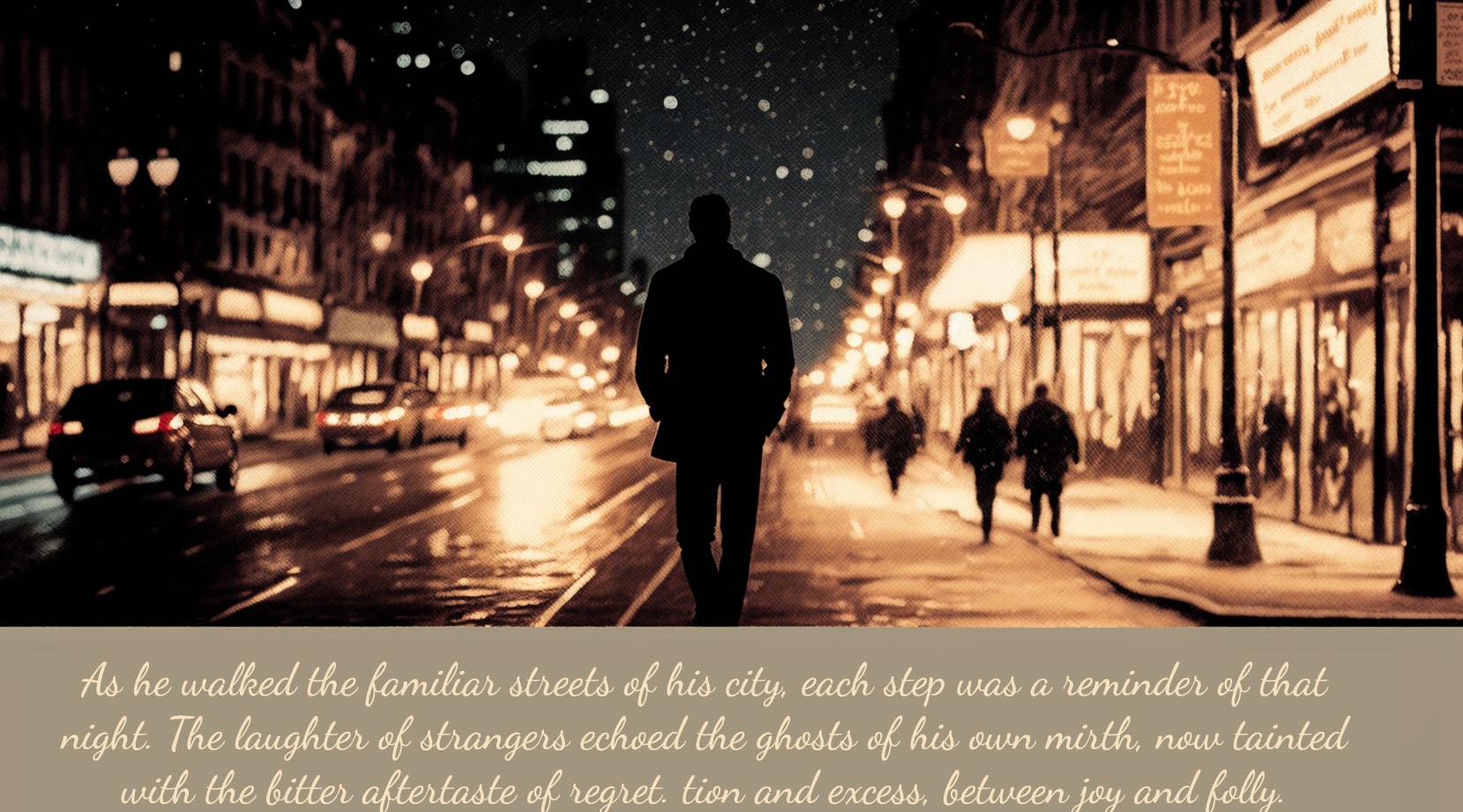
In the days following the infamous night, Cem found himself wandering through a haze of self-reflection and mild embarrassment. The world seemed to spin a little slower, the colors a touch duller. He was a man caught in the aftermath of his own storm, navigating through the debris of what was once a night of unbridled joy.
As he walked the familiar streets of his city, each step was a reminder of that night. The laughter of strangers echoed the ghosts of his own mirth, now tainted with the bitter aftertaste of regret. He pondered over the fine line between celebration and excess, between joy and folly. It was a dance as old as time, yet he had stumbled over his own feet.
In the quiet solitude of his apartment, Cem turned to the great philosophers for solace. He found himself in the pages of Bukowski, whose words spoke of life’s absurdities and the beauty in its chaos. He sought wisdom in the rugged prose of Jack London, finding parallels in the wild, untamed nature of his own spirit. Hunter S. Thompson’s whirlwind narratives reminded him of the unpredictability of life, while the blunt humor of George Carlin offered a mirror to his own follies.
It was during these moments of introspection that Cem began to understand the dual nature of life. Like the yin and yang, joy and sorrow were two sides of the same coin, forever intertwined in a delicate balance. He realized that his night of excess was not just a mistake, but a lesson in disguise, a reminder of his own humanity.
Cem’s friends, those who had witnessed his fall from grace, slowly reached out. Their conversations were tentative at first, a dance around the elephant in the room. But as the days passed, laughter returned, replacing the awkward silences. They spoke of the night, not with judgment, but with a shared understanding of its absurdity. In their stories, Cem found not only forgiveness but a sense of camaraderie, a bond forged in the fires of shared experiences.
As he reconnected with his friends, Cem began to see the night in a different light. It was no longer a mark of shame, but a chapter in the larger story of his life. A story filled with highs and lows, laughter and tears, and most importantly, growth.
Types of Hangovers
Hangovers are like unwelcome guests that crash the party of our lives. They come in different forms, wreaking havoc on our bodies, minds, and emotions. The physical hangover brings pounding headaches and aching muscles, while the mental hangover traps us in a labyrinth of foggy thoughts. And let’s not forget the emotional hangover, which leaves our hearts in a state of chaos. These three types of hangovers are the not-so-fun aftermath of a night of indulgence, and understanding them can help us navigate the treacherous waters of wine-induced regret.
Physical Hangover: The Bodily Battle
One factor that influences the severity of a hangover is the type of physical symptoms experienced. Hangovers from wine can be a bodily battle that leaves you feeling like you’ve been hit by a truck. Let’s explore the different types of physical hangovers you might encounter after a night of indulging in your favorite wine:
- Headache Hell: The pounding in your head is relentless, as if tiny construction workers are hammering away at your brain.
- Stomach Storm: Nausea, vomiting, and a general feeling of queasiness make you question every life decision you’ve ever made.
- Fatigue Fiasco: You wake up feeling more tired than when you went to bed, as if you’ve run a marathon in your sleep.
- Dehydration Disaster: Your mouth feels like the Sahara desert, and no amount of water can quench your thirst.
While expensive wine may not necessarily give you less of a hangover, knowing the type of physical hangover you’re dealing with can help you find the right cure for your wine-induced woes. So grab some water, take a pain reliever if needed, and give your body the rest it deserves. Cheers to a better tomorrow!
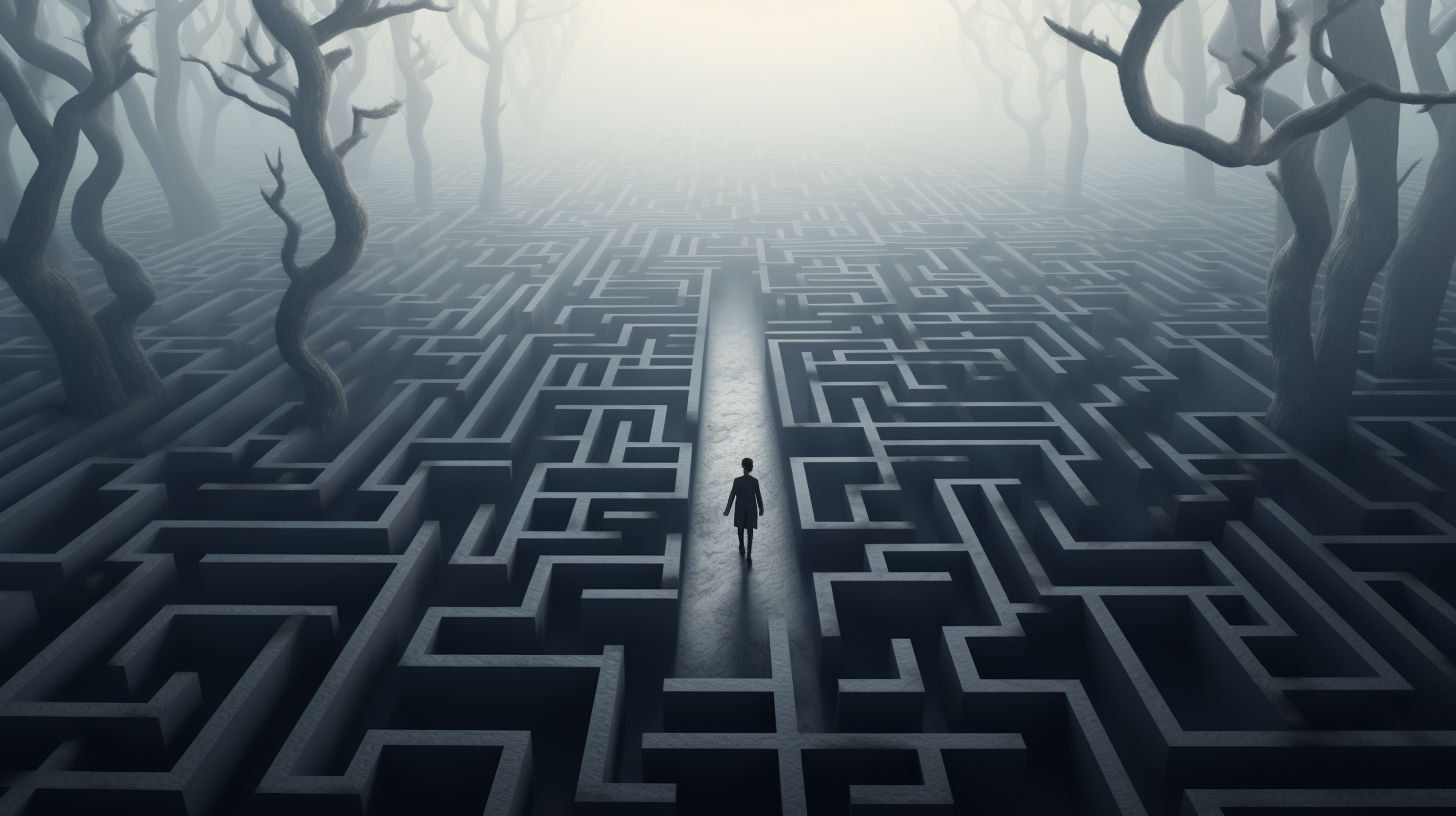
Mental Hangover: The Mind’s Maze
When it comes to the aftermath of indulging in wine, the mental hangover can be just as challenging as the physical symptoms experienced. It’s like navigating through a mind’s maze, trying to find your way back to clarity. Expensive wine may promise a less severe hangover, but the mental toll can still leave you feeling lost and disoriented. The mind’s maze is filled with foggy memories, scattered thoughts, and a general sense of unease.
It’s like trying to piece together a puzzle with missing pieces, leaving you feeling incomplete and unsettled. So, while expensive wine may offer a smoother physical experience, it’s important to remember that the mental hangover can still be a daunting journey through the labyrinth of your mind.
Emotional Hangover: The Heart’s Havoc
During the emotional hangover, the heart experiences the havoc caused by the effects of excessive wine consumption. It’s not just your head that’s pounding, your heart is feeling the burn too. Here are four ways the emotional hangover wreaks havoc on your heart:
- Racing Heart: Your heart may feel like it’s doing a marathon, beating faster than Usain Bolt on steroids. It’s like a wild stallion trying to break free from its stable.
- Heavy Heart: Your heart feels like it’s carrying the weight of the world on its shoulders. It’s as if someone dumped a truckload of emotional baggage on it.
- Broken Heart: Emotional hangovers can leave your heart shattered into a million tiny pieces. It feels like someone took a sledgehammer to your chest and left you gasping for air.
- Achy Heart: Your heart may ache, as if it’s been through an intense workout or a boxing match with Mike Tyson. It’s a constant reminder that you had one too many glasses of expensive wine and now your heart is paying the price.
Expensive Wine vs. Cheap Wine: Hangover Showdown
Let’s get ready to rumble! In the battle of Expensive Wine vs. Cheap Wine, we’re going to find out which one reigns supreme in the realm of hangovers. Are the ingredients and processing methods of expensive wine enough to save us from the dreaded morning-after headache? And what about those hidden hangover harbingers like additives and preservatives? It’s time to separate the champs from the chumps and settle the score once and for all.
Ingredient and Processing Showdown: The Hangover Potential
Comparing the hangover potential between expensive and cheap wine involves analyzing their respective ingredients and processing methods. So, let’s get down to the nitty-gritty and unravel the secrets behind these two contenders in the Hangover Showdown:
- Ingredient Quality: Expensive wines often use high-quality grapes, which means fewer impurities and potentially fewer hangover-inducing compounds. Cheap wines, on the other hand, may contain additives and lower-quality grapes that could contribute to a more brutal morning-after experience.
- Processing Techniques: Expensive wines are often crafted with care, employing techniques like longer fermentation and aging in oak barrels. These processes can help smooth out the flavors and reduce the presence of harsh compounds. Cheap wines, on the other hand, may undergo minimal processing, leaving behind a less refined and potentially more headache-inducing beverage.
- Alcohol Content: The alcohol content in wine can play a role in the severity of a hangover. Expensive wines tend to have lower alcohol levels, which means you can indulge in a glass or two more without risking a debilitating headache the next day. Cheap wines, with their higher alcohol content, may leave you regretting that extra glass.
- Overall Drinking Habits: Let’s face it, the hangover potential isn’t solely determined by the wine itself. Your own drinking habits, such as the amount consumed and the pace at which you consume it, will greatly impact how you feel the next day. So, regardless of the price tag on the bottle, it’s important to drink responsibly and pace yourself to avoid a wicked wine-induced hangover.
Additives and Preservatives: The Hidden Hangover Harbingers
Expanding on the comparison between expensive and cheap wines in terms of hangover potential, one crucial factor to consider is the presence of additives and preservatives, which can serve as hidden harbingers of hangovers. While expensive wines may boast of their superior quality and craftsmanship, they are not immune to the sneaky culprits lurking within. Additives such as sulfites, which are commonly used to preserve wine and prevent oxidation, can contribute to the dreaded wine hangover. These chemicals can cause headaches, allergic reactions, and overall discomfort.
Similarly, preservatives like artificial colors and flavors can exacerbate the effects of a hangover, leaving you regretting that indulgent glass of expensive wine. So, it’s essential to be mindful of what goes into your wine and opt for options that prioritize natural ingredients to minimize the risk of a hidden hangover.
The Quest for Understanding and Prevention
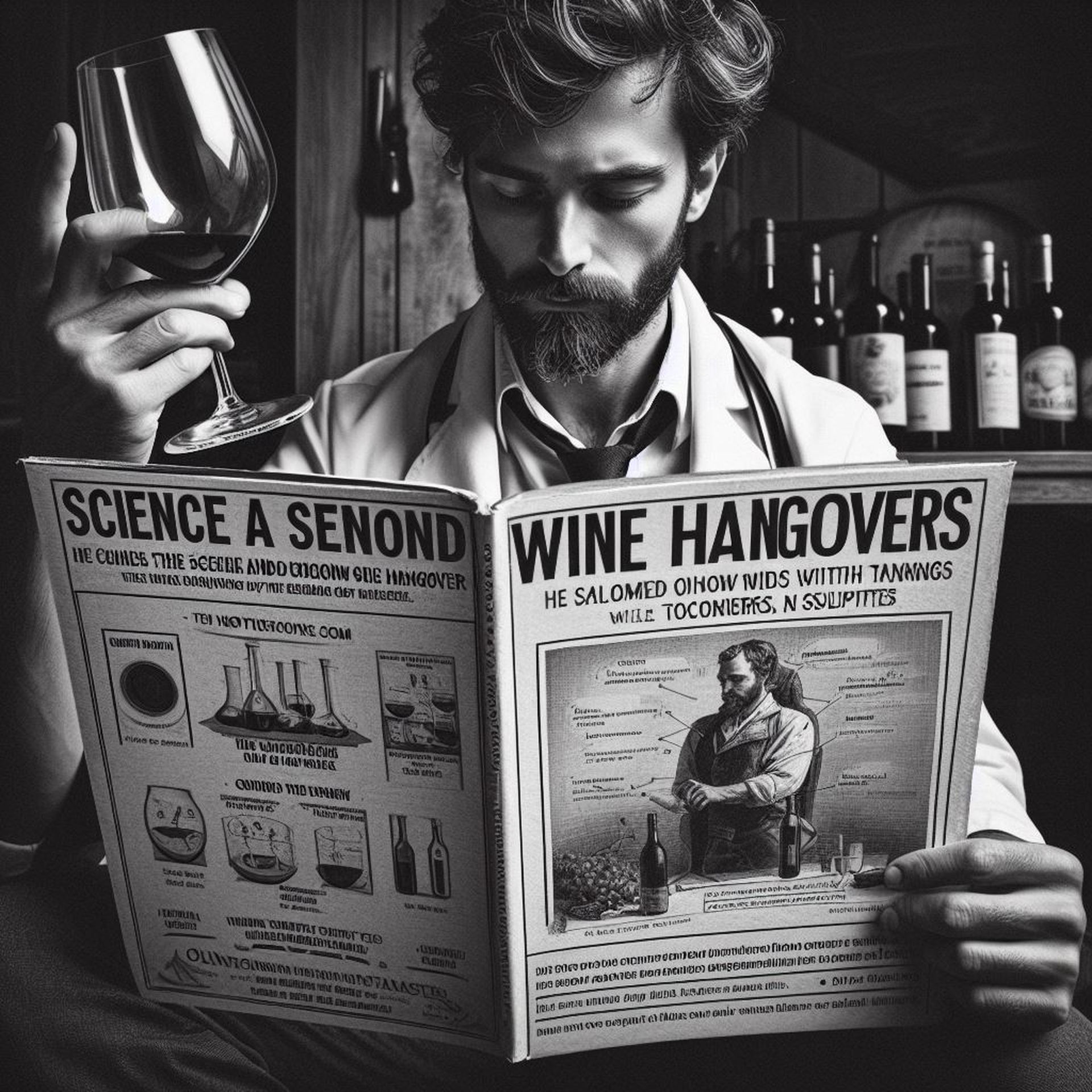
[To be continued…]
The Science Behind Wine Hangovers
The science behind wine hangovers is a fascinating and complex subject that involves a deep dive into the research and studies conducted on this topic. By unraveling the mystery behind wine hangovers, we can better understand the factors that contribute to their intensity and duration. From the role of congeners and histamines to the impact of alcohol content and wine type, the scientific spin on wine hangovers is sure to leave you intrigued and enlightened.
Research and Studies: Unveiling the Wine Hangover Mystery
Through research and studies, the science behind wine hangovers is being revealed. It turns out that the price tag on your bottle of wine might actually have an impact on the severity of your hangover. Here are four intriguing findings from recent research:
- Expensive wines may contain fewer impurities: Higher-priced wines tend to undergo more rigorous production processes, which can result in fewer impurities such as sulfur compounds and other additives. These impurities have been linked to hangover symptoms, so opting for pricier wines could potentially lead to a less severe hangover.
- Quality ingredients can make a difference: Expensive wines often use higher-quality grapes and are produced with meticulous attention to detail. This can result in a smoother, more refined taste, but it may also contribute to a reduced hangover. The theory is that lower-quality ingredients can lead to a higher concentration of compounds that contribute to hangover symptoms.
- Drinking behavior plays a role: Research suggests that people tend to consume expensive wines in a more controlled and moderate manner. This could be because of the perceived value and appreciation for the wine, leading to a slower pace of drinking and more mindful consumption. By avoiding excessive alcohol intake, you may be less likely to experience a severe hangover.
- Individual variability still matters: While expensive wines may offer some benefits in terms of reducing hangover severity, it’s important to remember that individual tolerance and sensitivity to alcohol can vary greatly. Factors like genetics, hydration levels, and overall health can influence how your body reacts to alcohol, regardless of the price of the wine.
Alcohol Content and Wine Type: The Scientific Spin
In examining the relationship between alcohol content and wine type, a scientific perspective sheds light on the factors influencing the occurrence of wine hangovers. So, does expensive wine give you less of a hangover? Well, it’s not as simple as just looking at the price tag. Alcohol content plays a significant role in how intense your hangover will be. Higher alcohol content in wines can lead to more severe hangover symptoms, regardless of the price.
Additionally, the type of wine also matters. Darker-colored wines, like reds, contain more congeners, which are compounds that can make hangovers worse. So, while expensive wine might taste better, it doesn’t necessarily mean you’ll have a milder hangover. It’s all about finding the right balance between alcohol content and personal preference.
Selecting Wines to Minimize Hangovers
When it comes to minimizing hangovers, selecting the right wines can make a difference. Tips for choosing low-hangover-potential wines include opting for lighter-colored varieties, such as white and rosé, which naturally contain fewer hangover-provoking compounds. Red and white wine recommendations that are considered hangover-friendly picks include Pinot Gris, Pinot Noir, Sauvignon Blanc, and Chardonnay.
Tips for Choosing Low-Hangover-Potential Wines
One strategy for minimizing hangovers is to select wines with low-hangover potential. When choosing wines, keep these tips in mind to ensure a less painful morning after:
- Opt for lighter-colored wines: Darker-colored wines, such as reds, tend to contain higher concentrations of congeners, which can contribute to worse hangovers. Lighter-colored wines like whites and rosés naturally have fewer congeners, making them a better choice.
- Choose lower alcohol by volume (ABV) wines: Higher alcohol content can increase the severity of hangovers. Look for wines with lower ABV to reduce the risk of waking up with a pounding headache.
Our blog entry on alcohol by volume (ABV) ‘Wine ABV: The Ultimate Guide to Cherishing Wine’s Alcohol Content‘ offers additional in-depth information on this topic if you’re interested. Everything you could ever need to know, or want to know, is right there.
- Avoid sweet wines: Wines with higher sugar content can exacerbate hangover symptoms. Stick to drier wines to minimize the likelihood of a morning-after regret.
- Stay hydrated: Before, during, and after drinking wine, make sure to drink plenty of water. Hydration is key to mitigating the effects of alcohol and reducing the chances of a pounding head the next day.
Red and White Wine Recommendations: The Hangover-Friendly Picks
To minimize the risk of hangovers, it is advisable to choose wines with lower-hangover potential, focusing on specific red and white varieties. When it comes to red wine, lighter options like Pinot Noir and Beaujolais are your best bet for avoiding a pounding headache the next morning. These varieties tend to have lower levels of tannins, which can trigger wine headaches. For white wine lovers, opt for Sauvignon Blanc or Riesling.
These wines have lower levels of histamines and sulfites, which are known culprits for hangover symptoms. Remember, expensive wine doesn’t necessarily guarantee a hangover-free experience. It’s all about choosing the right varieties that are gentle on your head and body. So, say goodbye to hangovers and cheers to a more enjoyable wine-drinking experience!
When Hangovers Turn Serious
Hangovers can turn from a mere inconvenience to a serious problem if not handled properly. When it comes to hangovers, there are certain things you should avoid to prevent making the situation worse. Additionally, the duration of a hangover can vary depending on the type of wine consumed, with darker-colored wines and higher concentrations of congeners often leading to longer-lasting symptoms. Understanding these factors can help you navigate the aftermath of a night of indulgence.

Hangover Don’ts: What to Avoid
Serious hangovers can be avoided by diligently following certain precautions and making conscious choices. When it comes to hangovers, there are definitely some don’ts that you should keep in mind. Here are four things to avoid when you want to prevent those miserable hangovers:
- Don’t drink on an empty stomach: Eating a solid meal before you start sipping on that expensive wine can help slow down the absorption of alcohol and minimize the impact on your body the next day.
- Don’t forget to hydrate: Alcohol is dehydrating, so make sure to drink water in between glasses of wine to stay hydrated and reduce the severity of your hangover.
- Don’t overdo it: Know your limits and drink in moderation. Pace yourself and avoid excessive alcohol consumption to avoid waking up with a pounding headache and a nauseous stomach.
- Don’t mix alcohol: Mixing different types of alcohol can increase the intensity of your hangover. Stick to one type of wine and avoid combining it with other spirits or cocktails.
Hangover Duration: The Wine Time Factor
As the effects of excessive wine consumption progress over time, the duration of hangovers can become more severe and prolonged. It’s like that never-ending party that just won’t quit. You wake up with a pounding headache, a queasy stomach, and regret pouring out of every pore. And as the day drags on, so does your hangover. It’s like time slows down, mocking you with every tick of the clock.
You start to wonder if you’ll ever feel normal again. But fear not, brave wine warrior, for there is hope. While expensive wine may not necessarily give you less of a hangover, there are ways to mitigate the wine time factor. Stay tuned for our next segment, where we’ll reveal the secrets to surviving those never-ending hangovers.
Personal Consumption and Hangover Severity
When it comes to hangovers, the severity can vary from person to person based on individual tolerance. Some people may be able to handle a few glasses of wine with minimal consequences the next day, while others may experience a full-blown hangover from just a single glass. Responsible drinking, which involves knowing your limits and practicing moderation, is key to minimizing the potential for a raging hangover. So, whether it’s expensive wine or a budget-friendly bottle, understanding your personal consumption and drinking responsibly can greatly influence the severity of your hangover.
Individual Tolerance: The Hangover Equation
Understanding individual tolerance is key to unraveling the hangover equation, which examines the relationship between personal alcohol consumption and the severity of hangover symptoms. Here are four factors to consider when it comes to individual tolerance and the hangover equation:
- Metabolism: Everyone’s body metabolizes alcohol differently. Some people have efficient metabolisms that can break down alcohol quickly, while others may have slower metabolisms that result in a longer-lasting hangover.
- Hydration: Your hydration levels can affect how your body reacts to alcohol. Staying hydrated before, during, and after drinking can help mitigate the severity of hangover symptoms.
- Alcohol sensitivity: Some individuals may be more sensitive to the effects of alcohol, experiencing stronger hangover symptoms even with moderate consumption.
- Genetic factors: Genetic variations can influence how your body processes alcohol. Certain enzymes involved in alcohol metabolism may be more or less efficient, affecting the severity of hangovers.
Responsible Drinking: The Art of Moderation
To effectively navigate the relationship between personal alcohol consumption and the severity of hangover symptoms, it is crucial to practice responsible drinking by moderating one’s intake. This means being mindful of the amount and frequency of alcohol consumption, as well as understanding one’s own tolerance levels. While expensive wine may be seen as a luxury, it does not necessarily guarantee a lesser hangover.
The key lies in moderation and contextually relevant choices. It’s important to listen to your body and know your limits. By pacing yourself, staying hydrated, and avoiding excessive alcohol consumption, you can mitigate the severity of hangovers regardless of the price tag of your wine. Remember, responsible drinking is an art that involves taking care of yourself and enjoying alcohol in a way that enhances your experience without compromising your well-being.
Natural Wines and Hangovers
Let’s talk about the hangover potential of natural wines and how they compare to conventional wines. Are natural wines really the holy grail of hangover-free drinking, or is it just another wine myth? We’ll explore whether the minimal intervention and organic farming practices of natural wines translate into fewer headaches and regrets the morning after. So grab a glass (or two) and let’s find out if natural wines are the secret to a hangover-free indulgence or just another buzzkill.
The Hangover Potential of Natural Wines
While natural wines tend to be associated with a range of perceived health benefits, it is important to examine their hangover potential. Here are four things to consider about the hangover potential of natural wines:
- Fewer additives: Natural wines are made with minimal intervention and typically have fewer additives, such as sulfites, which are known to contribute to hangovers. This could potentially result in a milder hangover experience.
- Higher alcohol content: Natural wines often have higher alcohol content compared to conventional wines. This means that if you overindulge, the higher alcohol content can contribute to a more severe hangover.
- Quality matters: Just because a wine is natural doesn’t mean it’s immune to causing hangovers. The quality of the wine, including factors like grape quality and winemaking techniques, can still affect the hangover potential.
- Individual differences: Hangovers can vary from person to person based on factors like metabolism, hydration levels, and overall health. So even if you’re drinking natural wine, your hangover experience may still differ from someone else’s.
Ultimately, while natural wines may have some potential benefits, it’s important to drink responsibly and be mindful of your alcohol consumption to minimize the chances of a hangover, regardless of the type of wine you choose.
Natural vs. Conventional Wines: The Hangover Comparison
-
- Natural wines and conventional wines have distinct differences in their hangover potential. When it comes to the raging battle between natural and conventional wines, hangovers are a major point of contention. So, does expensive wine give you less of a hangover? Well, it’s not just about the price tag. Natural wines, which are made from organic or biodynamic grapes and have minimal intervention in the winemaking process, are often touted as the healthier option. They are said to contain fewer additives and sulfites, which can contribute to hangovers. On the other hand, conventional wines may have a higher likelihood of causing hangovers due to the use of additives, including sulfites. Ultimately, the hangover comparison between natural and conventional wines is a matter of personal experience and tolerance. It’s all about finding the right balance and enjoying your glass of wine responsibly. Cheers!
10 Hangover Cures That Work Like Magic
In the aftermath of a night painted with the vibrant strokes of Dionysian indulgence, the hangover looms like a vengeful deity, ready to exact its toll. It’s a price we pay, often willingly, for moments of unbridled joy. But fear not, for the quest for the Holy Grail of hangover cures is not a journey into the void. Let’s embark on a rhapsodic exploration of remedies, separating the wheat from the chaff, the science from the myth.
Hydration: The Elixir of Recovery
Like a parched wanderer in the desert of post-celebration, hydration stands as an oasis. Water, the most unassuming yet powerful potion, replenishes what the bacchanalian revelry stripped away. Electrolyte-rich beverages join this crusade, not just quenching thirst but restoring the body’s delicate chemical balance. It’s a simple truth, often overlooked in the search for more complex solutions.
Light, Low-Flavor Meals: The Gentle Nourishment
In the throes of a wine hangover, the body craves simplicity. Light, low-flavor meals are akin to a soft melody in the cacophony of a throbbing head. Think of chicken noodle soup, a culinary symphony in a bowl, or a plain sandwich, as unpretentious as it is soothing. These are the unsung heroes in the battle against the hangover beast.
Sleep: The Timeless Healer
In the realm of hangover cures, sleep reigns supreme. It’s the return ticket from the land of excess, a journey back to the self. In the embrace of slumber, the body repairs, the mind resets. It’s a cure as old as time, a reminder that sometimes the most effective medicine is the most natural one.
Nonsteroidal Anti-Inflammatory Pain Relievers: The Modern Alchemy
For the pounding headaches, the modern world offers its own brand of alchemy: nonsteroidal anti-inflammatory pain relievers. Ibuprofen, the knight in shining armor for many, battles the dragon of pain with precision. But remember, with great power comes great responsibility. Dosage is key, and a consultation with a healthcare professional is the map to this territory.
In this odyssey of hangover cures, we weave through the labyrinth of fact and fiction, guided by the torch of science and the compass of experience. Each remedy, a chapter in the larger narrative of understanding our bodies and respecting their limits. It’s a journey not just of recovery, but of discovery, a dance with the dual nature of pleasure and consequence.
As we traverse this landscape, armed with statistics and empirical evidence, we are reminded of the power of informed choices. The real magic lies not in mythical potions but in knowledge, the most potent brew of all.
How to Prevent a Wine Hangover
Preventing a wine hangover requires a strategic approach. First, fortify your stomach with a pre-drinking meal, creating a shield against the onslaught of alcohol. Then, arm yourself with the water weapon, staying hydrated by alternating wine with water to fend off the dehydrating effects. Next, deploy the strategic sip, limiting your alcohol intake to avoid going overboard. And for those looking for extra hangover hacks, explore other methods like taking recovery supplements or sipping ginger tea. Finally, consult the hangover prevention playbook for practical tips to keep those wine-induced headaches at bay.
Pre-Drinking Eating: The Stomach Shield
Consuming a meal before drinking wine can help prevent the onset of a hangover. But it’s not just any meal – you need the ultimate Stomach Shield to protect yourself from the dreaded wine hangover. Here’s what you need to do:
- Fill up on protein: A hearty serving of chicken, steak, or tofu provides the foundation for your Stomach Shield. Protein helps slow down alcohol absorption and keeps you feeling fuller for longer.
- Load up on carbs: Pasta, rice, or bread are your best friends when it comes to preventing a wine hangover. Carbohydrates provide a buffer for the alcohol and help maintain stable blood sugar levels.
- Don’t forget the veggies: A colorful salad or a side of roasted vegetables adds essential vitamins and minerals to your Stomach Shield. Plus, the fiber in veggies aids in digestion and keeps things moving smoothly.
- Hydrate, hydrate, hydrate: Before you start sipping on that expensive wine, make sure to drink plenty of water. Hydration is key to preventing hangovers, so keep a glass nearby and alternate between sips of wine and sips of water.
With the Stomach Shield in place, you can enjoy your wine without the fear of a hangover spoiling your day. Cheers to a night of indulgence without the morning regret!
Hydration: The Water Weapon
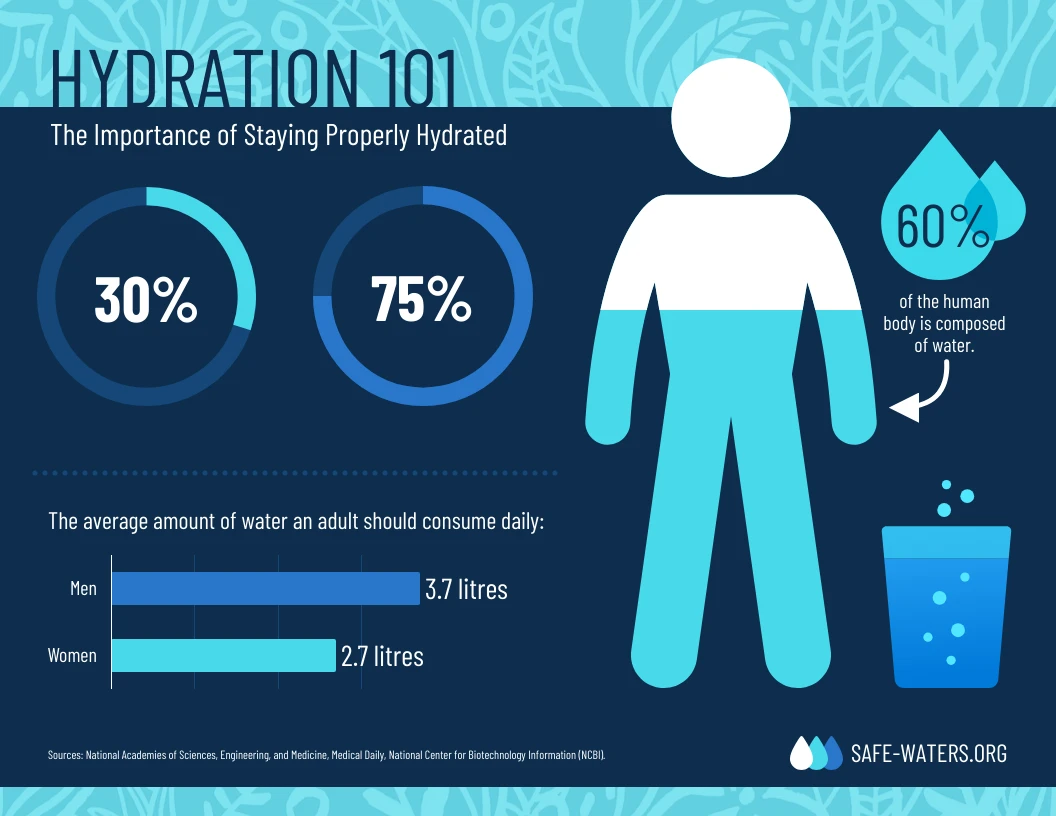
To effectively prevent a wine hangover, maintaining proper hydration is essential. Hydration: the water weapon. It may not be as glamorous as a bottle of expensive wine, but water is your best friend when it comes to avoiding the wrath of a hangover. Think of it as your secret weapon, ready to battle those pesky alcohol-induced headaches and dehydration. When you’re sipping on that glass of vino, make sure to also have a glass of water by your side.
Alternate between sips of wine and sips of water to keep yourself hydrated throughout the night. Trust me, your head will thank you in the morning. So, next time you’re indulging in a night of wine tasting, don’t forget to arm yourself with the water weapon and stay hydrated to ward off that dreaded hangover.
Limiting Alcohol Intake: The Strategic Sip
Continuing the discussion on preventing wine hangovers, a strategic approach to alcohol intake can help mitigate the effects and reduce the likelihood of a dreaded wine hangover. Here are four tips to strategically sip your way to a less painful morning-after:
- Pace Yourself: Slow and steady wins the race. Take your time and savor each sip of wine. This not only allows you to enjoy the flavors, but it also gives your body time to process the alcohol more efficiently.
- Set a Limit:
- Eat before you drink: A full stomach can help slow down the absorption of alcohol and reduce the severity of a hangover. So, fuel up with a meal before you indulge in that glass of wine.
- Hydrate, hydrate, hydrate: Drink water in between glasses of wine to stay hydrated. This helps counteract the dehydrating effects of alcohol and can lessen the severity of a hangover.
- Opt for Lower ABV Wines: Alcohol by volume (ABV) can vary greatly in wines. Choosing wines with a lower ABV can reduce the intensity of a hangover. So, consider reaching for that lighter-bodied white or rosé instead of a full-bodied red.
- Know your limits: Know your limits and stick to them. Decide in advance how many glasses of wine you will have and hold yourself accountable. It’s all about finding that sweet spot where you can enjoy the wine without going overboard.
Other Methods: The Hangover Hacks
Implementing additional strategies can be effective in preventing a wine hangover and mitigating its unpleasant effects. While drinking expensive wine may have its benefits, there are other hangover hacks that can come to the rescue. One tried and true method is to drink plenty of water in between glasses of wine to stay hydrated. Eating a full meal before indulging in wine can also help absorb some of the alcohol.
Opting for lower alcohol by volume (ABV) wines can reduce the intensity of the hangover. And remember, moderation is key! Avoid mixing wine with other types of alcohol to prevent a disastrous morning-after. With these hangover hacks, you can enjoy your wine without suffering the consequences the next day. Cheers to a headache-free wine experience!
Myths and Facts About Wine Hangovers
Let’s bust some hangover myths and get to the truth about wine-induced headaches. From the belief that expensive wine gives you less of a hangover to the idea that sulfites are solely to blame, it’s time to uncover the real culprits behind those pounding wine headaches. Get ready for some surprising revelations and expert insights that will leave you questioning everything you thought you knew about wine hangovers.
Debunking Common Hangover Myths
Numerous myths surrounding wine hangovers persist, but a closer examination reveals that these common beliefs are often unfounded. Let’s debunk some of these myths and get to the truth about wine hangovers:
Myth: Expensive wine gives you less of a hangover.
Fact: The price tag of a wine has no impact on the severity of a hangover. Hangovers are primarily caused by the consumption of alcohol, regardless of the cost of the bottle.
Myth: Mixing different types of wine causes worse hangovers.
Fact: It’s not the mix of wines that leads to a rough morning-after, but rather the total amount of alcohol consumed. Whether you stick to one type of wine or sample a variety, it’s the overall quantity that matters.
Myth: Drinking water before bed prevents hangovers.
Fact: While hydrating before bed is always a good idea, it won’t magically ward off a hangover. Drinking water can help prevent dehydration, but it won’t eliminate the effects of alcohol on your body.
Myth: Champagne doesn’t cause hangovers.
Fact: Unfortunately, even the bubbly delight of champagne can lead to a hangover. The alcohol content in champagne is just as capable of causing unpleasant morning-after symptoms as any other wine.
Expert Opinions: The Truth Unveiled
In the labyrinth of wine hangover lore, where myths and facts intertwine like vines in a vineyard, it’s time to prune away the fiction and let the truth flourish. Drawing from the deep wells of scientific research and expert opinions, we embark on a quest to demystify the enigma of wine-induced headaches. Let’s uncork the bottle of knowledge and pour out insights that might just change the way you view your next glass of wine.
- The Price Tag Paradox: Contrary to popular belief, the cost of a wine bottle is not a silver bullet against hangovers. Research from sources like PubMed and ScienceDirect reveals that hangovers are indiscriminate, striking regardless of the wine’s price. It’s the alcohol content, not the price tag, that’s the key player in the hangover game.
- The Mixing Myth: A study in Alcohol and Alcoholism debunks the myth that mixing different types of wine exacerbates hangovers. It’s not the variety, but the volume of alcohol that counts. Whether you’re sipping a single varietal or a medley, it’s the quantity that tips the scales.
- Hydration Hype: While hydrating is crucial, it’s not a hangover panacea. As per Cedars-Sinai, water can mitigate dehydration but can’t erase the effects of alcohol. It’s a helpful ally, but not a cure-all.
- Champagne’s Chagrin: Bubbles don’t spare you the headache. Champagne, as delightful as it is, still packs an alcoholic punch. The effervescence might lift your spirits, but it won’t lift the burden of a hangover, as noted in research from Health Harvard.
Empirical Insights: A/B Results Unfold
In the realm of A/B testing, where empirical data speaks louder than anecdotes, we find intriguing insights. Studies like those at Salford PsyTech and Sage Journals offer a glimpse into the nuanced world of hangovers. These studies reveal that individual factors like genetics, drinking habits, and even psychological state play a significant role in hangover severity. It’s a complex interplay, far from the simplicity of old wives’ tales.
Passing on the Inheritance
As I stepped into the softly lit venue, a sense of nostalgia washed over me. It’s been years since that infamous night, but the memories linger like the aftertaste of a robust wine. I’m here to see Cem, an old friend and the protagonist of a story that has become somewhat legendary among our circle.
The place is buzzing with the clink of glasses and the murmur of conversations. I spot Cem in the crowd, unmistakable with his easy smile and the animated gestures of a seasoned storyteller. He’s in his element, orchestrating a wine-tasting event with the flair of a maestro. It’s a far cry from the reckless nights of our youth, and I can’t help but feel a swell of pride.
Cem is mentoring a young man who could easily be his younger self’s doppelgänger. The eagerness in the young man’s eyes, the attentive way he hangs on to every word Cem says, it’s all too familiar. They’re discussing the nuances of a particular vintage, and I overhear Cem imparting wisdom about not just the wine but the art of enjoying it responsibly. It’s a beautiful sight – the passing of the torch, the sharing of lessons learned the hard way.
As I watch them, I’m reminded of a quote from the movie The Hangover: “You guys might not know this, but I consider myself a bit of a loner. I tend to think of myself as a one-man wolf pack.” That line, ironically, encapsulates our journey. We started as lone wolves, each navigating the complexities of life and its indulgences in our own way. But along the way, we found each other, and our pack grew. We learned, we stumbled, and we grew some more.
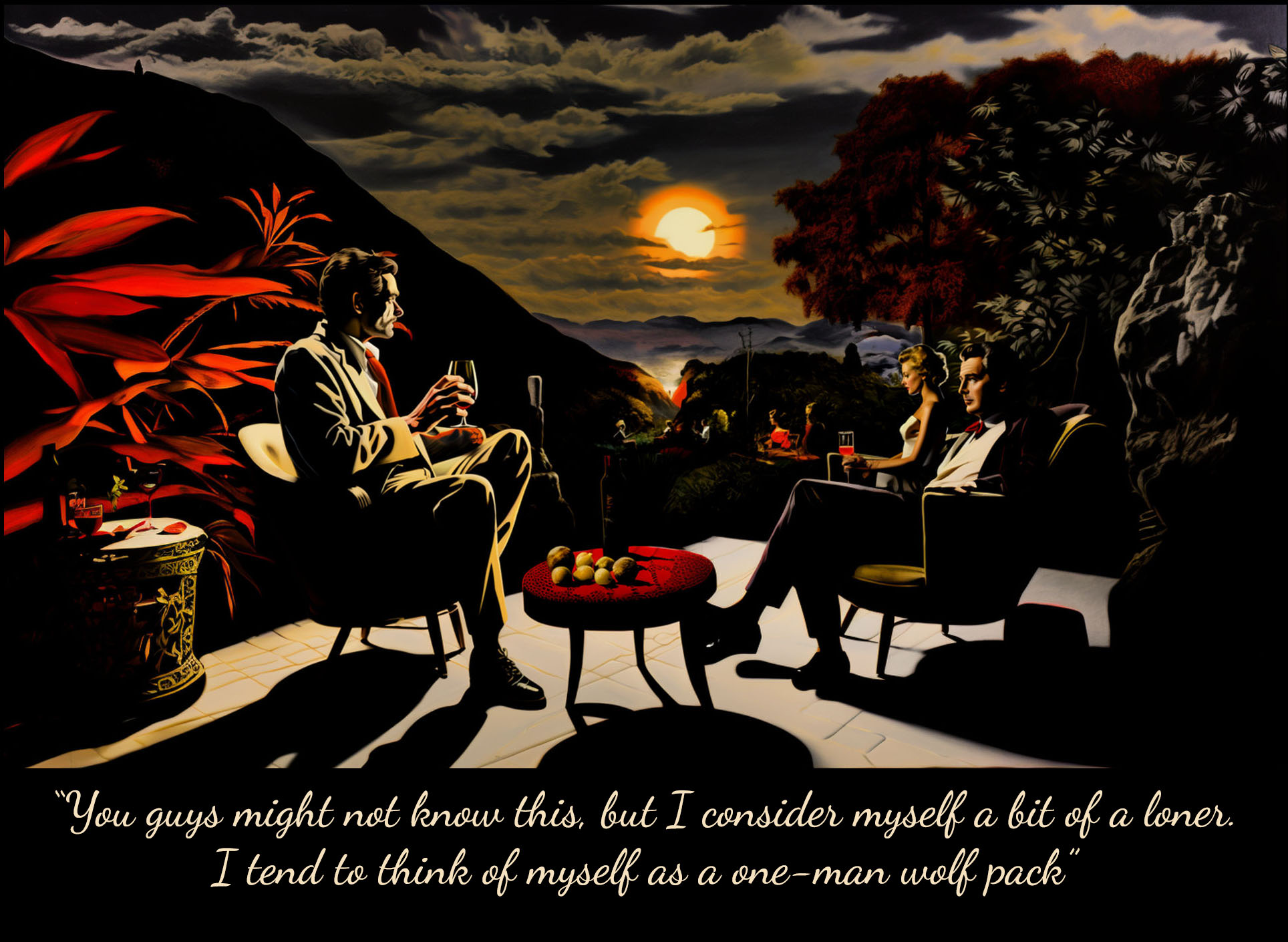
Now, Cem is extending that pack, sharing his experiences and wisdom with a new generation. His journey from a wild party-goer to a mentor in the world of wine is not just a personal transformation; it’s a legacy being passed down.
As the evening winds down, I approach Cem. We exchange a look that says more than words ever could. In that moment, I realize that our stories, our mistakes, and our lessons are not just ours to keep. They are our inheritance to pass on, a way to ensure that the next generation can navigate their paths a little more wisely, a little more safely.
So, to you, dear reader, who has joined us on this journey through the highs and lows of wine and its after-effects, I extend my heartfelt thanks. May the stories and lessons in these pages guide you, entertain you, and perhaps even enlighten you.
The enjoyment of wine comes from savouring its flavours and aromas, not its after-effects. Remember, every glass of wine holds a story, and every story holds a lesson. Cheers to the stories yet to be told, and the lessons yet to be learned.
FAQ Section
As we dive into the FAQ section of this article, let’s address two intriguing points: ‘Hangxiety’ and the truth about wine filters. Hangxiety, the combination of hangover and anxiety, is a common phenomenon experienced by many after a night of indulging in wine. And while wine filters may seem like a promising solution to reducing hangover symptoms, it’s important to uncover the truth behind their effectiveness. So, let’s unravel these mysteries and gain a better understanding of the complexities of wine hangovers.
What is ‘Hangxiety’?
Understanding the concept of ‘Hangxiety’ is essential when exploring the effects of wine on the mind and body. Hangxiety, a portmanteau of hangover and anxiety, refers to the feelings of anxiety and unease that can accompany a hangover. It’s like a double whammy of misery. So, how does this relate to expensive wine and hangovers? Well, it doesn’t really. Hangxiety can occur regardless of the price tag on your bottle of wine.
Whether you’re sipping on a $5 bargain or indulging in a $500 vintage, the potential for hangover-induced anxiety remains the same. So, don’t let the allure of expensive wine fool you into thinking it will give you a less severe hangover or spare you from the dreaded hangxiety. It’s all about moderation and taking care of yourself, regardless of the wine you choose to drink.
The Truth About Wine Filters
While exploring the effects of wine filters, it is important to address common questions and misconceptions surrounding their use. So, let’s get down to the nitty-gritty and uncover the truth about wine filters. Can they really save us from the dreaded hangover? Well, here’s the deal: wine filters can remove sulfites and sediment, which might be helpful for those with sulfite intolerance. However, when it comes to reducing hangover symptoms, wine filters are unlikely to be a magical solution. They can’t remove all the other troublemaking compounds called congeners that contribute to the hangover experience. So, while a wine filter might make your wine taste cleaner, it won’t necessarily save you from the consequences of excessive alcohol consumption. Remember, the main cause of a hangover is still that extra glass (or bottle) of wine, not the sulfites or sediment. So, drink responsibly and be kind to your liver.
- Real Simple – Hangover Cures and Prevention
- Drinkaware – Hangover: Fact or Fiction
- Man of Many – Wine Headaches
- Bright Cellars – How to Avoid a Wine Hangover
- OMRE – Why Are Wine Hangovers Bad
- Wine Folly – The Best Wines to Avoid a Wine Hangover
- The Wine Coach – Wines to Drink to Avoid Allergies and Headaches
- Centara Hotels & Resorts – Homemade Remedies for a Hangover
- Medical News Today – How Long Does a Hangover Last
- Food & Wine – Certain Booze Hangover-Proof
- Robinson, J. (2015). “The Oxford Companion to Wine.” Oxford University Press. Link
- Goldstein, E., & Santy, J. (2018). “Wine Science: Principles and Applications.” Academic Press. Link
- Puckette, M., & Hammack, J. (2018). “Wine Folly: The Master Guide.” Avery. Link
- Johnson, H., & Robinson, J. (2013). “The World Atlas of Wine.” Mitchell Beazley. Link
- Peynaud, E. (1987). “The Taste of Wine: The Art and Science of Wine Appreciation.” Wiley. Link
- Goode, J., & Harrop, S. (2013). “Authentic Wine: Toward Natural and Sustainable Winemaking.” University of California Press. Link
- Bisson, L. F., Waterhouse, A. L., Ebeler, S. E., Walker, M. A., & Lapsley, J. T. (2002). “The Present and Future of the International Wine Industry.” Nature, 418(6898), 696–699. Link
- Taber, G. M. (2005). “Judgment of Paris: California vs. France and the Historic 1976 Paris Tasting That Revolutionized Wine.” Scribner. Link



